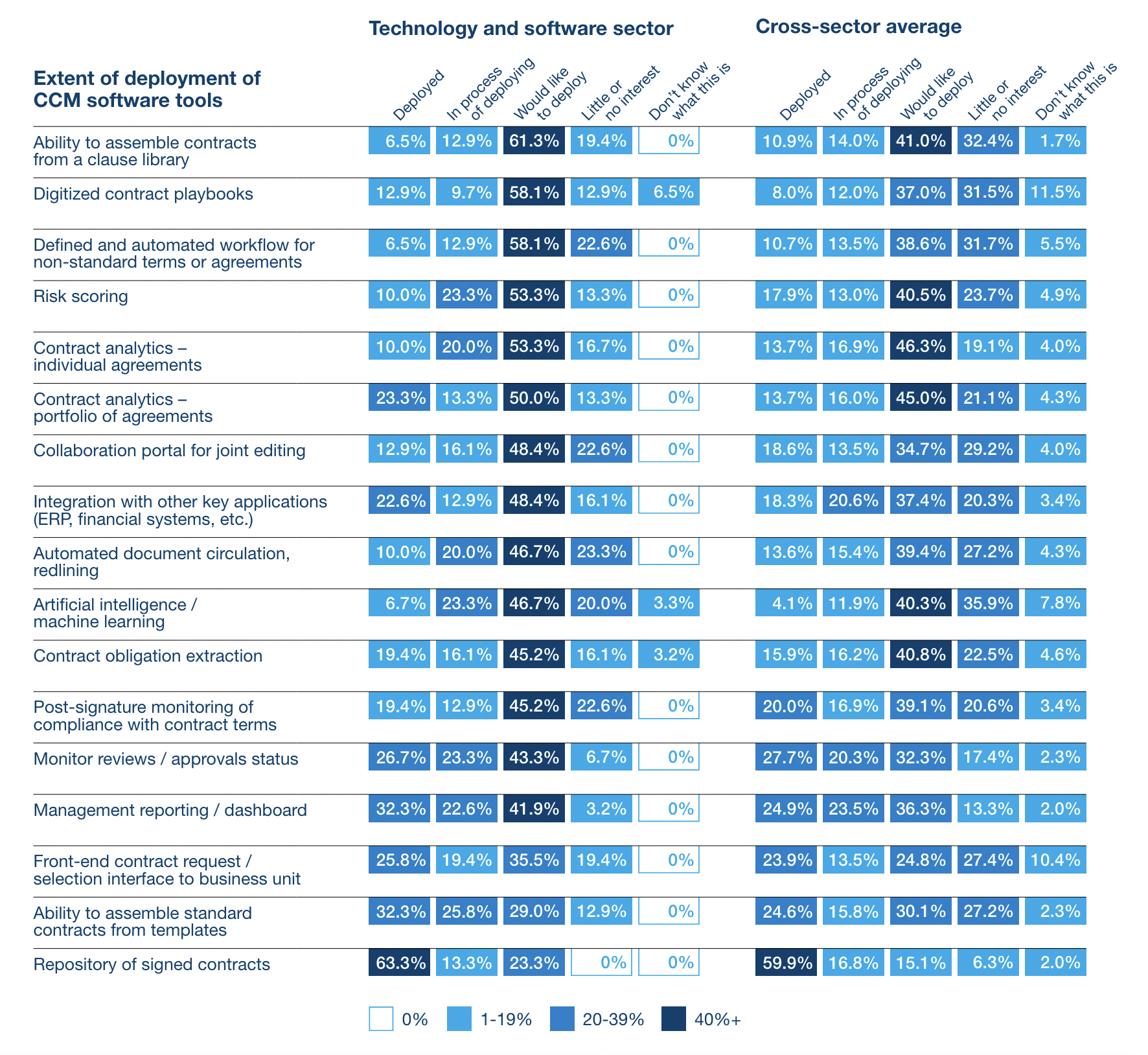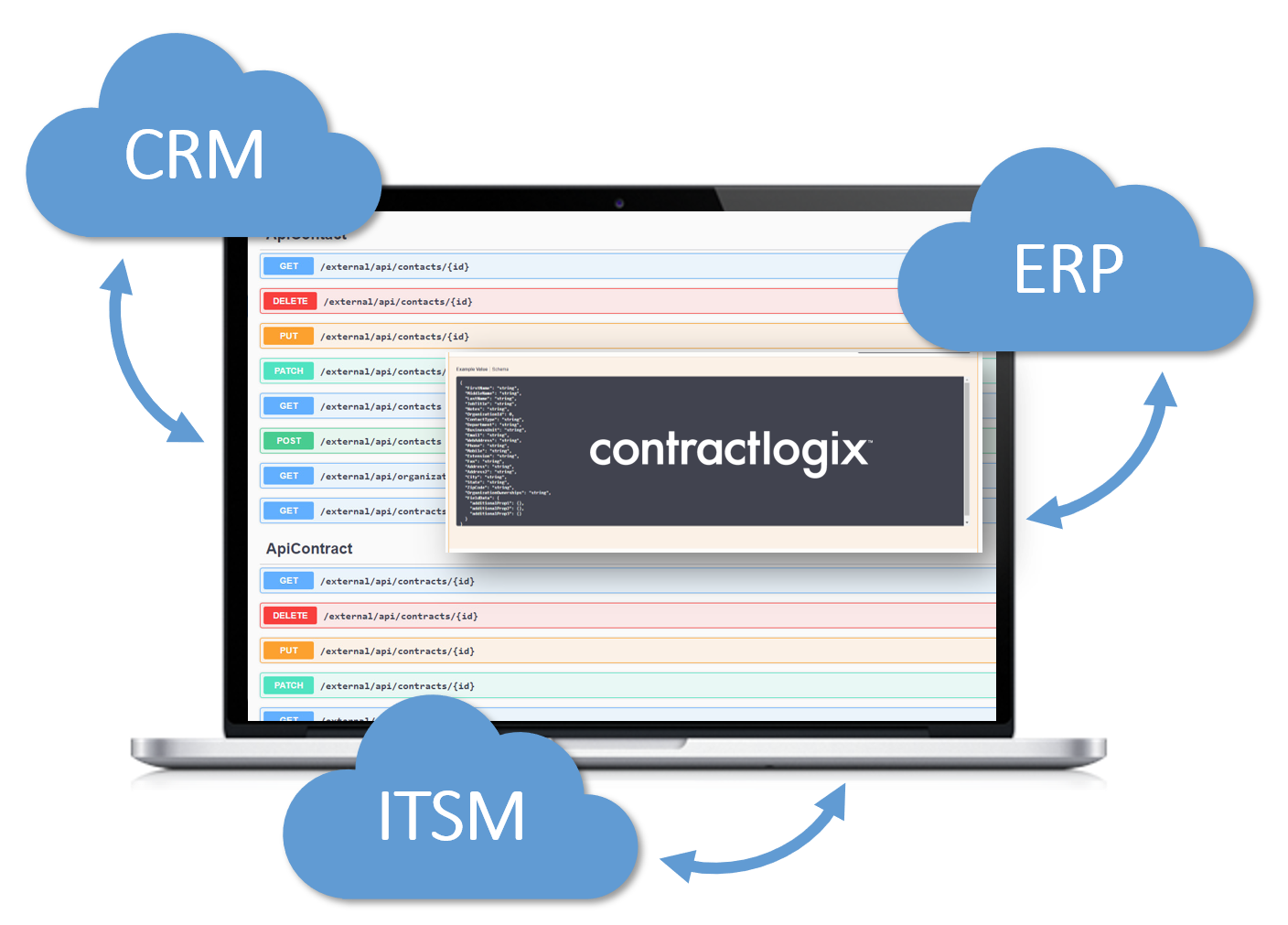The Future of Contract Lifecycle Management: Trends to Watch
May 23rd, 2024
Contract lifecycle management trends are not just reshaping strategies; they’re revolutionizing entire operational frameworks.
At the heart of this shift is the surge in digital contract transformation. These innovations are doing more than just automating administrative tasks; they are crafting a new era where contracts are not only managed, but also strategically optimized in real-time.
As businesses across the globe pivot to these advanced tools, the impact is profound—ushering in unprecedented efficiency and risk management capabilities that promise to redefine industry standards and ensure compliance. This article explores how embracing these trends are becoming crucial for organizations aiming to thrive in an interconnected digital economy.
Quick Takeaways
- With the increasing need for operational agility, about 60% of executives are now focusing on implementing Contract and Commercial Management technology to automate and streamline their processes.
- Integrating contract management with ERP and CRM systems improves workflow efficiency and data uniformity across departments.
- Increased cyber threats necessitate robust security features like encryption and multi-factor authentication in CLM systems to protect data and comply with regulations.
- Modern CLM systems have developed intuitive interfaces that simplify operations and amplify productivity, aligning with digital transformation goals.
😉PS: Master your contract management strategies by learning the
‘10 Contract Lifecycle Management KPIs Every Business Needs‘
Automation and Efficiency in Contract Lifecycle Management
As businesses increasingly look for ways to move faster and more efficiently, about 60% of executives are now focusing on implementing Contract and Commercial Management (CCM) technology. This shift is driven by the need to improve how they manage contracts, especially increasing the visibility of contract details and ensuring information flows smoothly across different departments.
Automation makes it easier to find, create, and manage contracts quickly, cutting down the time needed to complete these tasks and enhancing overall work performance. This not only helps businesses operate faster, but also helps them meet regulatory standards more easily and reduce costs by cutting down on manual work.
Financially, automation helps businesses increase revenue and boost the bottom line by streamlining contract processes and minimizing risk. It also ensures better compliance with laws through stronger tracking systems, which is especially important in industries that face strict regulations.
However, despite these advantages, many companies find their current technology isn’t doing enough, with only a fraction fully utilizing tools to track contracts and automate the contract lifecycle. There’s a strong push to improve these technologies to fully recognize the benefits of modern CLM solutions, enhancing business efficiency and agility.
Enhanced Security, Compliance Features, and Business Continuity
Enhanced security and compliance features in contract lifecycle management systems are more crucial than ever.
A concerning 48% of organizations reported an increase in cyberattacks in 2023 compared to the previous year, underscoring the growing threat landscape. This statistic highlights the imperative for robust security measures within CLM systems to safeguard sensitive contract data against breaches and ensure compliance with evolving regulations.
CLM software address these challenges by incorporating advanced security protocols such as:
- Encryption
- Multi-factor authentication
- Regular security audits
These features are vital for preventing unauthorized access and ensuring the integrity and confidentiality of contract data are maintained. Additionally, compliance tools embedded within contract management solutions help organizations adhere to industry standards and regulations, mitigating legal and financial risk.
Moreover, in today’s environment, where disruptions are increasingly common, the importance of business continuity cannot be overstated. CLM solutions ensure essential agreements and obligations are managed efficiently, even during disruptive events. This continuity is crucial not only for maintaining operations under adverse conditions, but also for preserving trust and reliability among clients and stakeholders.
Shift Toward More User-Friendly Interfaces
The shift toward more user-friendly interfaces in contract management software is transforming how users interact with technology.
Simplifying the user experience is essential, as it allows users of all technical skill levels to manage contracts effectively without extensive training. This trend is driven by the broader push towards digital transformation in business processes, where ease of use and accessibility are prioritized to amplify productivity and user satisfaction.
Modern contract lifecycle management systems are designed with intuitive interfaces, including:
- Drag-and-drop functionality
- Customizable dashboards
- Visual workflow builders
These features make it easier for users to create, negotiate, and manage contracts, thus accelerating the contract lifecycle and reducing the time to completion. The focus on user-friendly design helps organizations maximize their investment in CLM technology by increasing adoption rates and user engagement across departments.
Integration with Other Business Systems
The integration of contract lifecycle management systems with other business platforms such as ERP (Enterprise Resource Planning) and CRM (Customer Relationship Management) is key for enhancing organizational efficiency.
Break down silos with a unified view of contract data, streamlining workflows, and ensuring a single source of truth across the organization.
For example, linking CLM systems with CRM allows sales teams to access essential contract data, aligning Sales and Contract Management resulting in closing deals faster and enhancing operational efficiency. Similarly, integration with ERP systems synchronizes financial details with contract data, supporting improved compliance and financial planning.
Such integrations not only automate data flows to minimize errors, but also optimize strategic operations and compliance, underscoring the critical role of integration capabilities in maximizing the effectiveness of contract lifecycle management systems.
Rise of Contract Analytics for Strategic Insights
Contract analytics are transforming business operations by providing strategic insights from existing agreements. Leveraging contract management software, these tools automate contract reporting and analysis, improving decision-making and operational efficiency.
For instance, flawed contract terms can potentially siphon off up to 9% of a company’s annual revenues, emphasizing the importance of optimized contract management. Advanced analytics improves risk management and compliance, streamlines workflows, and raises the bottom line by ensuring contract terms are consistent and up-to-date.
Expanding Role of CLM in Remote Work Environments
The shift to remote and hybrid work has significantly increased the reliance on contract management platforms, which are essential for managing contracts in dispersed work environments. These solutions facilitate real-time collaboration and access to contract data and analytics, crucial for remote teams to collaborate and make informed decisions quickly.
By integrating seamlessly with other business tools, CLM systems enhance transparency and efficiency across departments, supporting a more agile and cohesive approach to contract management in the evolving workplace landscape.
Sustainability and Corporate Social Responsibility in Contracting
The integration of sustainability and Corporate Social Responsibility (CSR) into contracting is increasingly critical, playing a pivotal role in optimizing Environmental, Social, and Governance (ESG) reporting.
This technology simplifies the tracking of contractual obligations, such as greenhouse gas emissions included in the agreement. Contract lifecycle management software helps organizations ensure adherence to sustainability standards by providing visibility into this information while reducing the administrative workload associated with managing ESG data.
Furthermore, ESG commitments are closely linked to financial performance, influencing long-term corporate resilience. For instance, supply chain disruptions can significantly impact revenue, underscoring the financial implications of sustainable practices. Adopting effective ESG strategies helps companies mitigate risk and seize investment opportunities, improving their financial outcomes.
The movement towards harmonized non-financial reporting, driven by stakeholder demands for transparency, is also notable. The Global Reporting Initiative (GRI) is the most adopted standard, guiding companies in sustainable reporting and practices. Reporting and analytics features of contract management solutions enable easy and agile compliance tracking, performance measurement, and strategic decision-making.
What About AI?
While AI holds tremendous potential for contract management, many organizations lose sight of the basics to achieve tangible ROI, including time savings, risk mitigation, and complete visibility. Learn 3 foundational steps to establish a successful CLM program here.
Harnessing Contract Logix for Advanced Contract Management
The evolution of contract lifecycle management is significantly driven by advancements in digital contract transformation, enhancing efficiency, security, and compliance.
These technologies enable predictive analytics and risk assessments, optimizing strategic decision-making. The shift toward user-friendly interfaces and robust remote capabilities highlights technology’s role in dynamic business environments and sustainable corporate practices.
Contract Logix leverages these advancements by offering a streamlined contract management solution that enhances compliance and operational efficiency with automation. Its platform features integrated AI tools utilizing natural language processing (NLP) and optical character recognition (OCR) and a user-friendly interface, enabling businesses to quickly adapt to market and regulatory changes while supporting strategic objectives.
Ready to see how Contract Logix can advance your organization’s contract management? Discuss your specific needs with our team or request a personalized demo to see our platform in action.
Looking for more articles about Contract Management? Check out our previous article “The Role of Training in Contract Management Processes“.
Navigate CLM Success With Contract Logix
Download our Data Extraction Product Brief to learn how you can begin to navigate CLM success by automating the hard work using artificial intelligence with one of the best Contract Management Software’s on the market today




